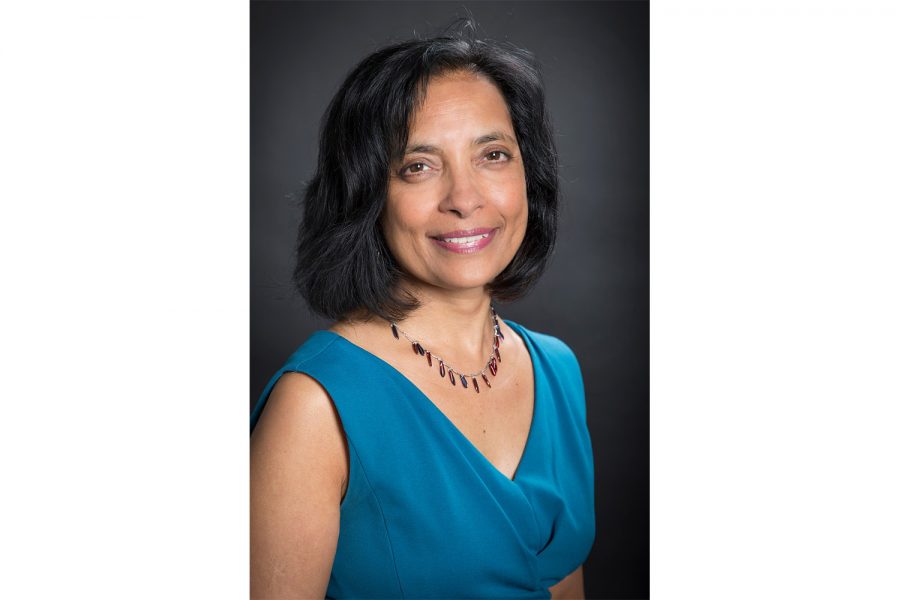UI arts departments to present social justice virtual series
This month, University of Iowa arts departments will present a series of virtual events that explore a range of pertinent racial and humanitarian issues.
Photo of Journalism professor and Director of the UI Nonfiction Writing Program Meenakshi Gigi Durham. Contributed.
January 31, 2021
Starting this month, University of Iowa arts departments will host a series of virtual events discussing the intersections between social justice and art.
Titled “Art and the Pursuit of Social Justice,” the virtual series of events will bring the arts and humanities together, framed in a social context. The series will feature speakers from the departments of Cinematic Arts, Dance, English, Theatre Arts, the School of Music, the International Writing Program, and the Nonfiction Writing Program.
Each event will include an artistic presentation from a local artist or faculty member that brings a creative perspective to each respective topic, followed by an academic dialogue headed by a UI scholar, with a few other knowledgeable speakers. There is also a panel aspect to the conversations where the audience can participate in exploring each subject.
The series will commence with a reading from local author Felicia Rose Chavez’ new book The Anti-Racist Writing Workshop: How to Decolonize the Creative Classroom. Later, Professor of Journalism and Director of the UI Nonfiction Writing Program Meenakshi Gigi Durham will head a discussion based on Chavez’ book. The panel will focus on the crucial issue of creating more inclusive and diverse writing workshops and programs.
In light of the Black Lives Matters protests of last year, Durham said she feels it is necessary to have a conversation about creating spaces where a range of voices and perspectives can be engaged, especially those that have been silenced or discounted in the past.
“There’s a growing consciousness of the way structures and institutions have contributed — and continue to contribute — to social inequities and injustices,” Durham wrote in an email to The Daily Iowan. “To make progressive change, we need to be having these conversations and finding specific actions that would result in positive transformations.”
RELATED: Obermann Center presents panel on bilingualism in Iowa
Later in the month, one event will investigate the role of the artist and scholar in changing the discourse around social activism in a polarized political climate. Playwright and composer Michael Dinwiddie, an associate professor at the Gallatin School of Individualized Study at New York University, will discuss art’s role in opening up difficult conversations.
Dinwiddie described the importance of having this discussion in the context of living during such a heavily divided time as a way to “bring down the temperature” of the nation’s political arguments through the use of art.
“[Artists] have the ability to humanize the struggles that too often are politicized or polarized into extreme positions,” Dinwiddie said.
The Art and the Pursuit of Social Justice series will also feature a few events that are a part of a different virtual series through the UI Cinematic Arts Department titled “Black Lives on Screen.” This series, organized by UI Cinema Associate Professor Paula Amad, will feature virtual film screenings and discussions featuring the work of a diverse range of acclaimed African American and Black filmmakers, artists, and scholars.
Amad emphasized the importance of exploring the realm of cinema through a Black and African American lens because of the educational opportunity it provides the UI community and other institutions. She said the rich history of Black lives involved in cinematic art should be further discussed, and that the Department of Cinematic Arts intends to do that.
“That’s what we’re wanting to promote, all of the Black and African American voices and artists who are picking up cameras and telling their own stories and expressing their own visions, including our own faculty,” Amad said.




